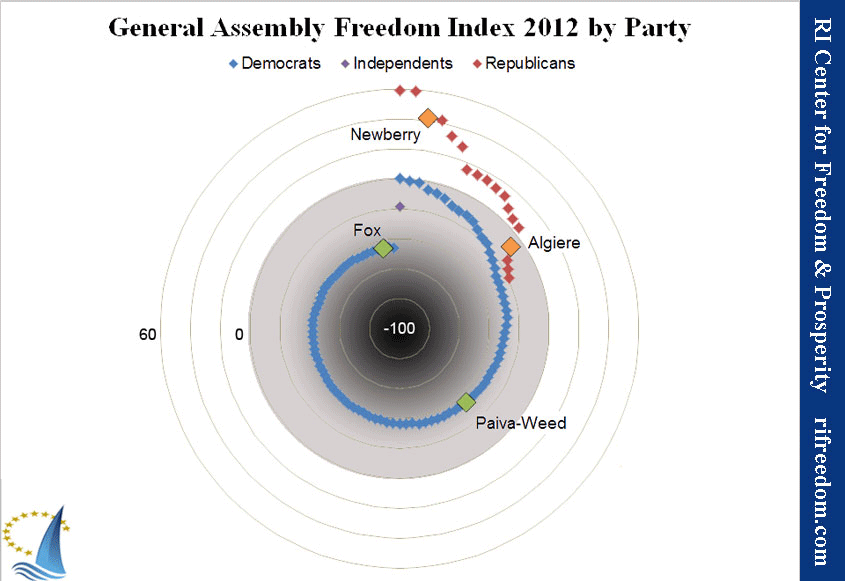Surreal at the State House II: John Simmons Versus the Rule of Law
During testimony before the Rhode Island House of Representatives Oversight Committee last night advocating for full payment of the 38 Studios moral obligation bonds, John Simmons of the Rhode Island Public Expenditures Council repeatedly made the point that the bond market will not recognize any difference between non-payment of moral obligation versus non-payment of general obligation debt. They will both be considered “default” by the state of Rhode Island.
Simmons stated that, based upon the bonding agreement, there was “fully an obligation of the state of Rhode Island to make the payments if the underlying transaction went under”. Representatives Spencer Dickinson and Mike Chippendale both challenged this.
Rep. Dickinson paraphrased an Economic Development Corporation bond prospectus, referring to a statement that “there’s no possible way that the state or any municipality is intended to obligate itself in the case of these bonds” (on page 35, according to the Rep). Mr. Simmons responded that he had seen similar language in other prospectuses “30, 40, 50 maybe a lot more times”. Pressed by Dickinson as to why this did not establish a clear difference between moral and general obligation bonds, Mr. Simmons read from a ratings agency statement, and said that the agency “is saying to you that it doesn’t make a difference to them if it’s GO, moral obligation or appropriation debt. If you do not pay it is default on debt. They’re giving an equal weight, in the sense of how they approach it”.
Rep. Chippendale quoted from the law that authorized the bonds…
I’m just going to read it. “The 2010 bonds and the interest thereon do not constitute a debt, liability or obligation of the state or any political subdivision thereof, and neither the faith or credit nor the taking or taxing power of the state or any political subdivision thereof is pledged to the payment of the bonds, or the interest thereon. That’s a fairly clear statement. Of course, you did address that and you said that’s fairly boilerplate…
Mr. Simmons’ reply was that…
What you have in the language is fairly standard boilerplate language on this type of debt, constant debt, this is a fairly large amount.
But a blithe dismissal of some very clear language in the bond authorization is a blithe assertion that everyone — legislators, citizens and investors — should know that the rules that the financial industry makes up for itself (and for its own benefit, by the way) can automatically override the plain text of a law. Finance industry decrees are the real final law of the land; the law made by legislatures, on the other hand, is only real to the degree that it does not conflict with the limits that financiers lay down.
This kind of system, where the people are expected to accept that there are privileged classes who can ignore the plain meaning of actual laws made by the government chosen by the representatives of the people, cannot be reconciled with the rule of law. If the best argument that John Simmons can muster about there being no difference between moral obligation and general obligation bonds is that bondholder and ratings agency decrees can override what the law says, his opinion on this aspect of repayment deserves summary dismissal.
More to come on this topic…

